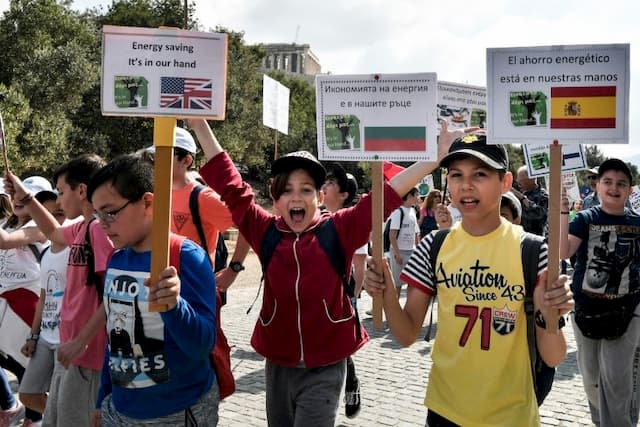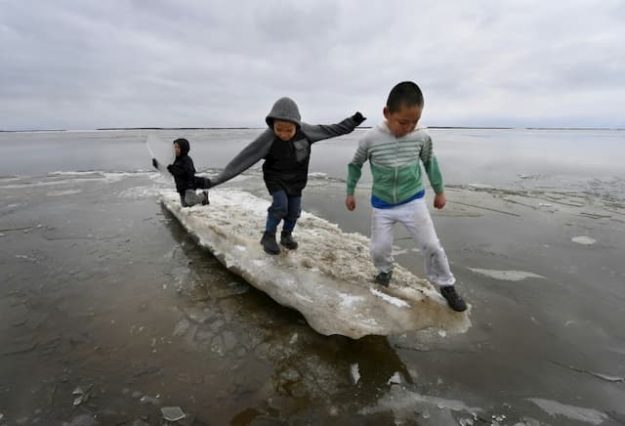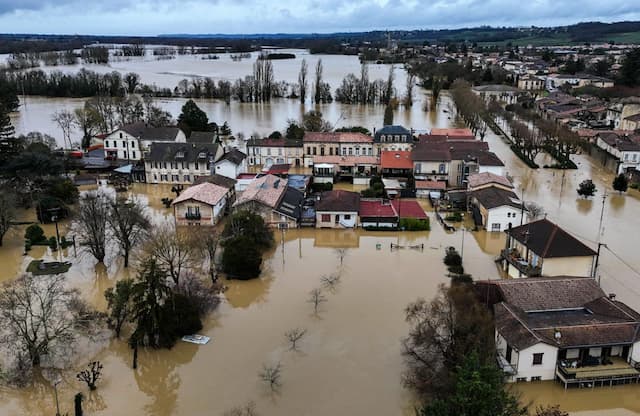Climate Change is Needed, Thanks to Young People, in European Elections

As young people mobilise for a second “global climate strike” on Friday, the climate change debate has never been so hot in the European Elections
For the first time, climate change has become a prominent issue for traditional political parties in European elections , particularly in response to the wave of youth mobilisation.
On Friday, in the middle of a European election, the latter are called to take to the streets for a new “global climate strike” , the second of its kind after the March 15 th, which mobilized hundreds of thousands of students and high school students. the world.
The young Greta Thunberg has become one of the emblematic faces of the protests. Thousands of teenagers and young adults have followed his call to dry classes once a week.
The 16-year-old Swede, invited to Brussels, warned representatives of the European political class that they would remain in history as “the greatest villains of all time” if they do not act.
A subject that interests more
The growing consensus for an urgent response to climate change is fueling hopes for cooperation between political parties. But some fear that this dynamic is hampered by the populist formations, if they were to register a strong progress in the European hemicycle.
A barometer published in April by the European Parliament showed that if the economy, growth, the fight against youth unemployment and immigration remain the main concerns of Europeans, climate change and the protection of the environment are gaining in importance.
Citizens from a dozen countries (Sweden, the Netherlands, Denmark, Finland, Belgium, Luxembourg, Germany, France, Malta) are particularly attached to it. Others are still far from seeing it as a priority: Bulgaria and Romania – the two poorest countries in the EU – the Baltic States, Poland or the Czech Republic.

Read also: European elections 2019: surprise victory of pro-Europeans in the Netherlands
“Historical Dynamics”
“Compared to 2014, it really became one of the major issues,” says AFP Dara Murphy, campaign director of the European People’s Party (EPP), the main political force in the outgoing Parliament. His center-right party has added climate change to its agenda over the past two years.
For analyst Stella Schaller of the Adelphi think tank, the debate has really taken a turn “in the last four to six months”, amidst droughts, fires and floods and their harsh consequences for farmers, warnings of scientists, popular events and wide media coverage.
Udo Bullmann, leader of the Social Democrats in the European Parliament, wants to take advantage of a “historic dynamic”.
He, too, assures us that his group has revised its agenda in the last two years to tackle the climate challenge, while ensuring that the poorest and the unemployed will not be penalized by the energy transition and by avoiding social unrest. the image of the movement of “yellow vests” in France.
The EU has committed under the Paris Climate Agreement of December 2015 to reduce its greenhouse gas emissions by at least 40% by 2030 (compared to 1990). But according to scientists and non-governmental organizations, this ambition is insufficient to achieve the goal of limiting global temperature rise to less than 2 ° C compared to the pre-industrial era.
Read also: Emmanuel Macron unites the first “Council of ecological defense”
Anti-climate frond
In recent months, expert groups have warned of the threats to humanity posed by climate change and the destruction of nature. But faced with these movements, some react with just as much passion.
Like other far-right groups, the Alternative for Germany (AfD) party has decided for this European campaign to ride the anti-climate sling.
Climatosceptic, pro-diesel and pro-coal , it seeks to seduce those who believe that the fight against climate change is driving up energy prices, destroying jobs and hurting the industry.
Analyst Stella Schaller fears that “liberal and conservative groups are diluting proposals” to woo nationalists.
But the EPP “will never do business with the extreme right” on climate or other themes, insists Dara Murphy.
As for the Greens, they hope to take advantage of the pro-climate movement. One of its European leaders, Bas Eickout, remains cautious about the hopes of cross-party cooperation within the renewed hemicycle on topics such as the price of carbon, the end of aid to air transport or the allocation of funds related to environmental issues.
Asked whether political parties have really made a fundamental change in the climate or are simply trying to win votes, he replies that “the jury is still deliberating”.
Enjoyed this? Get the week’s top France stories
One email every Sunday. Unsubscribe anytime.


